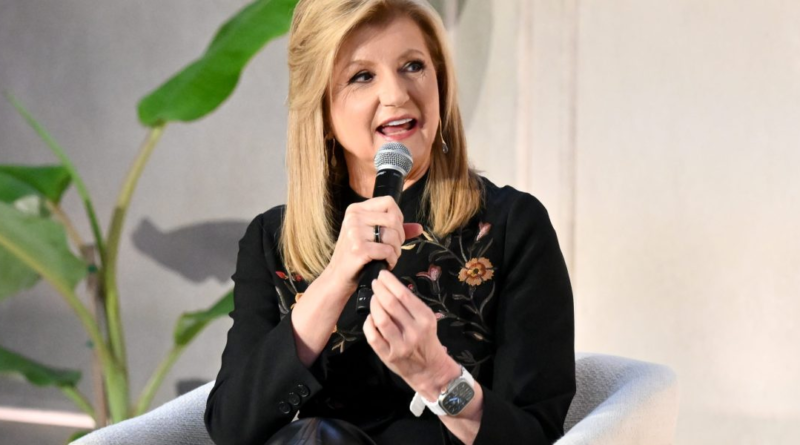OpenAI’s Sam Altman and Thrive Global’s Arianna Huffington want to share the ‘miracle drug’ to extend human life
There’s a lot of speculation about how artificial intelligence can revolutionize health care. Thought leaders in health and wellness are eager to see how AI could minimize health care burnout and staffing shortages. Others are exploring the prospect of AI supporting a growing aging population outside the four walls of a doctor’s office, reducing the prevalence of chronic diseases, and improving quality of life.
OpenAI’s Sam Altman and Thrive Global’s Arianna Huffington are teaming up to find AI solutions for the 130 million Americans diagnosed with at least one chronic condition.
On Monday, the OpenAI Startup Fund and Thrive Global announced their funding and launch of Thrive AI Health, which will develop an AI health coach to give personalized health recommendations using people’s biometrics and lifestyle habits as references. The AI coach will be driven by scientific data and trained on Thrive’s behavior change methodology, which centers on microhabit changes.
“We talk about AI normally in terms of productivity, taking the drudgery out of work. These are, of course, very important applications of AI,” Huffington, founder and CEO of Thrive Global, a behavior change platform, tells Fortune. “But ultimately, what matters is how AI helps us fundamentally improve our health spans and life spans. If you think of it in the same way that the New Deal fueled our physical infrastructure to transform the country and democratize benefits, AI can serve as part of that critical infrastructure in a much more effective healthcare system that supports everyday people in an ongoing way.”
The company named DeCarlos Love, a former Google executive experienced in wearable technology and product development, as the CEO of Thrive AI Health.
“Recent advancements in artificial intelligence present an unprecedented opportunity to make behavior change much more powerful and sustainable,” said Love in the press release announcement of the launch.
Huffington says she’s optimistic about AI’s potential to be a “key to behavior change” by assimilating large data sets, recognizing patterns, and making personalized recommendations. It’s not enough to give people a generic 10,000 steps goal or suggest the Mediterranean diet, she says. “We now have an opportunity to use that miracle drug of behavior change,” she says. “We need to democratize what people in the 1% know and practice.”
The platform’s AI health coach will give personalized sleep, food, fitness, stress management, and social connection recommendations. Users can give the coach as much health information as they want, including personal preferences like bedtime, favorite foods, and how they like to destress.
“We know that when people get value, they’re willing to share a lot,” says Huffington.
She believes building trust and accountability comes when people see the product’s benefits over time.
“Consider what it’s like to be a busy professional with diabetes. You might be struggling to manage your blood-sugar levels, often missing meals and exercise due to a hectic schedule,” Huffington and Altman write in a TIME op-ed. “A personalized AI health coach, trained on your medical data and daily routines, could provide timely reminders to take your medication, suggest quick and healthy meal options, and encourage you to take short breaks for exercise.”
Health equity is a widespread concern for people as AI interventions scale more widely. Thrive AI Health partnered with Dr. Gbenga Ogedegbe, a professor of population health and medicine and the director of NYU Langone’s Institute for Excellence in Health Equity, to test and iterate the product on underserved populations more likely to be at risk for chronic conditions.
“We would never scale enough human coaches to reach these populations. AI gives us the scale and precision possibility,” Huffington says. Still, the company must overcome widespread concerns about data and security breaches.
“The challenge is that many of these AI technologies are new, and the right compensating controls to manage the emerging risks are just now being built,” writes Hugh Thompson, Ph.D., the executive chairman of the largest cybersecurity conference, in Fortune. According to the press release, Thrive AI Health will have “robust privacy and security guardrails.”
The platform’s inaugural team is moving fast to customize and test its product, eager to see it as a backbone of health infrastructure in the future. The Alice L. Walton Foundation is an investor, and the company has launched a partnership with research and academic institutions to help scale the service, including Stanford Medicine and the Rockefeller Neuroscience Institute at West Virginia University. The product will be available to Thrive Global’s employer base, with ongoing conversations to scale through self-insured employers and pharmaceutical companies.




